In recent years, it has become more and more common for travel bloggers to travel on press trips and various types of paid trips. So, how does it really work? And can you trust what a sponsored travel blogger writes? We have good insight into the industry and think that you as a reader also have the right to know how it is. Today we tell you how it works. Full transparency then!
Innehållsförteckning
Different ways of travelling
As a rough generalisation, Swedish travel bloggers travel on five types of trips: 1) Private trips, 2) Private trips with certain collaborations, 3) Work trips, 4) Press trips and 5) Paid blog campaigns. We will try to explain what these different ways of travelling are, how they are reflected in the blogs and how they might affect the way the blogs are written.
1. private trips
How does it work? Just like any other trip! The blogger books and pays for their own trip, and everything that happens during the trip, out of their own pocket. Destinations and travelling companions are chosen for private reasons.
How is it labelled? Not at all, of course, as there is nothing to label.
What does it mean for you as a reader? You'll have the chance to read about a blogger's experience of a trip they planned and paid for themselves.
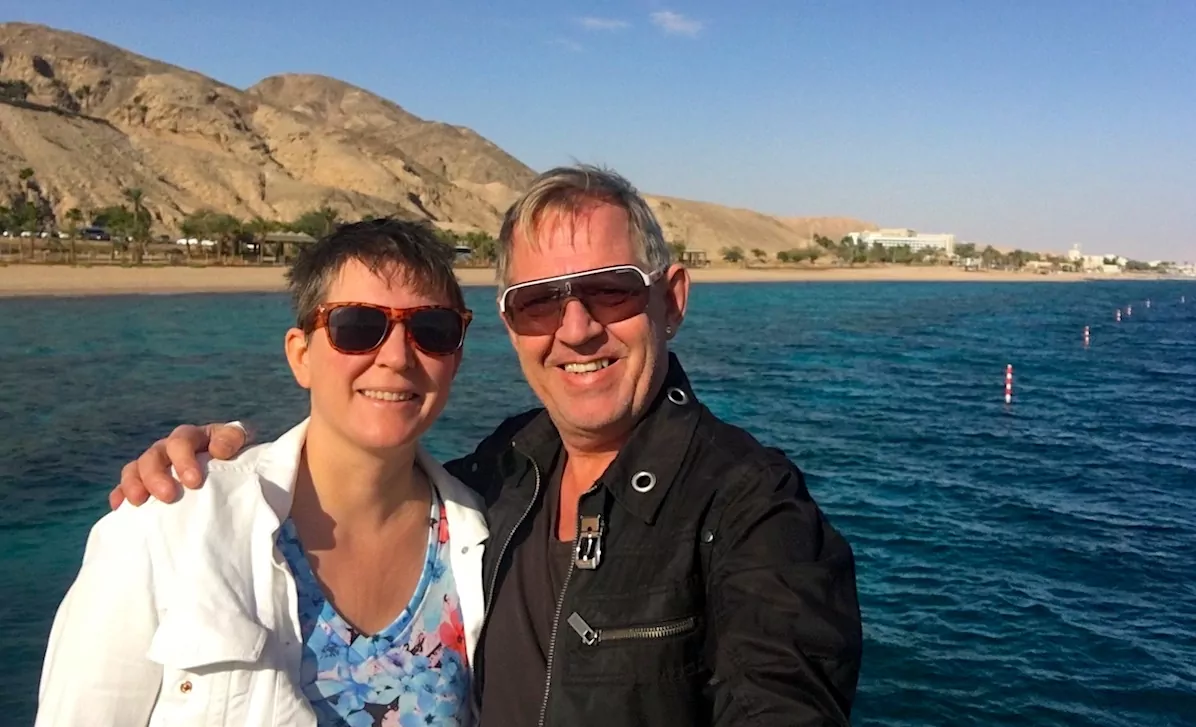
2. Private trips with partnerships
How does it work? Just as above, but the travel blogger makes occasional collaborations or invites a company to an experience that they hope to publicise. It may be that a company wants to showcase a city walk or that you get a press discount at a hotel.
How is it labelled? If the blogger receives compensation stated in exchange against exposure on the blog is advertising and should be labelled. However, this is not necessarily the case. If you have been invited to a city walk without You don't have to label it, and the usual "press discount" at a hotel doesn't have to be labelled either. However, some bloggers choose to mention if they have been invited to something, to be clear to the reader.
What does it mean for you as a reader? The blogger will most likely write honestly about his or her experiences, but it is possible that offers and discounts may influence what you choose to do during your trip. That's why it's always good to be clear and honest. Note that in this case, bloggers are much more transparent than traditional media, where it is rarely clear who financed different experiences.
3. Business trips
How does it work? Some travel bloggers travel for work. It may be because they work in the travel industry or because they work in a completely different industry, but travel to conferences and meetings. As a travel blogger, you naturally want to take the opportunity to blog about the destination while you're there.
How is it labelled? A business trip does not have to be labelled in any way, but the blogger may still tell you why he or she is visiting the destination.
What does it mean for you as a reader? Work trips are very different, so it's hard to say how writing is affected. If you work in the travel industry, you may see the destination from a certain perspective? If you have completely different work tasks, and perhaps sit at a conference all day, you may instead have little time to experience the destination. It is possible to imagine that you perceive and describe the destination a little differently when you are at work instead of on holiday.
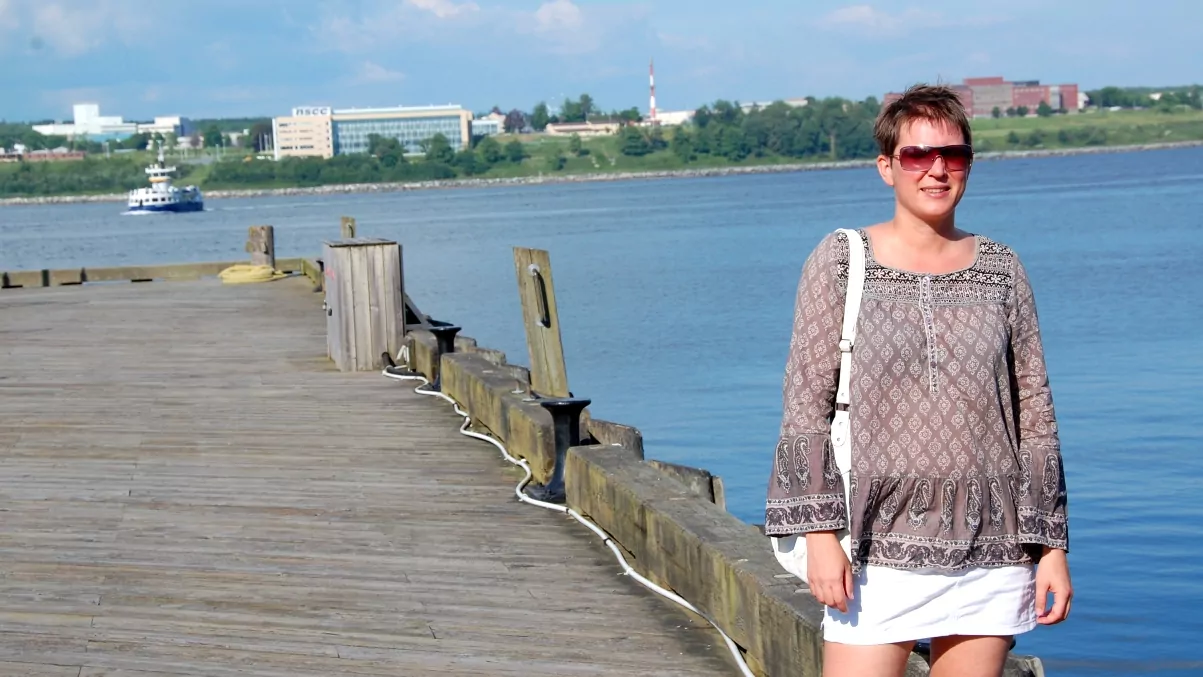
4. press trips
How does it work? In the past, press trips were organised for journalists, but today it is also common for bloggers to be invited. Press trips are organised either by a country's tourist board or by a travel company, and the purpose is for the country or company to showcase what they have to offer.
It is hoped that the journalists and bloggers will write positively about the destination, but there are no agreements, either about that to write or if bet you have to write. Press trips often have a hectic schedule and are paid for, in whole or in part, by the tourist office or travel company. Sometimes you have to pay for your own flight to the destination.
How is it labelled? As there is no explicit requirement for exposure on a press trip, it is not considered advertising and does not have to be labelled. However, most bloggers do label to be clear and transparent to readers. For example, it is common for a first post to say that you are going on a press trip, and then write at the bottom that "This trip is a press trip. The texts, images and opinions are, as usual, our own".
Note that the journalists on the same press trips as us bloggers write articles in the newspapers and I have never seen the press trips labelled. So in this case, bloggers are much more transparent than the traditional media.
What does it mean for you as a reader? The good thing about press trips is that you get help to find gems that you can then recommend. Many of our best travel experiences and best travel tips are from press trips. But is there any risk of being biased in your reporting then? Many travel bloggers claim that it will not be no difference at all.
We don't really believe this ourselves. Even if you write honestly, you are probably influenced in some ways. For a start, press trips help to influence the choice of destination to a certain extent, and if you don't have to pay an expensive restaurant bill, that's one less thing to consider in the experience.
Nevertheless, travel bloggers strive to write honestly about their experiences. We have deliberately chosen to also write about any negative experiences on press trips, as we believe that comprehensive reporting is good for readers. Many other travel bloggers choose not to write at all if they don't like a restaurant or hotel.
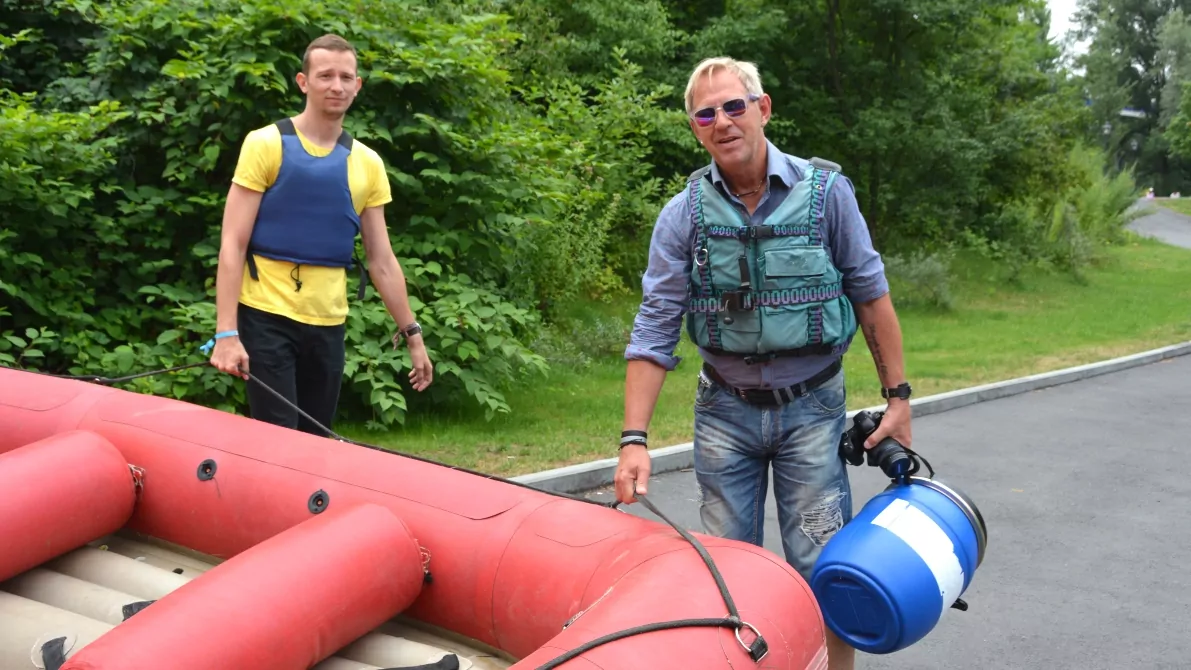
5. Paid campaigns
How does it work? An association of travel bloggers organises paid campaigns in partnership with tourist agencies or travel companies. We're not part of this group, but we can tell you how it works. The tourist agency or travel company organises a trip for a number of bloggers and pays for a campaign where the bloggers then promote the destination on their various social channels such as blog, Facebook, Instagram and Twitter. An agreement is made where it is decided in advance how many blog posts etc. the blogger will produce. The blogger is not only paid for the trip but also receives a salary for their work.
How is it labelled? Since the blogger is remunerated in exchange against exposure on the blog, this is advertising and should be labelled. Bloggers who go on these types of trips also tend to be very careful to write "advertising cooperation" or similar at the beginning of the post.
What does it mean for you as a reader? Here you can make much the same argument as with press trips, plus the blogger also gets paid to promote the destination. You might think that it is difficult to write anything other than positively then. How are you supposed to get new assignments? But many bloggers say that they always only write about the positive aspects of a trip and simply choose to not write about what might not be good.
How do you think?
So what did we want to say with this? We really just want to give you as a reader full insight into how travel blogging works and what different labels mean. Full transparency then! We will continue to go on press trips, which is an incredibly good way to find gems to tell about. We will also go on our own trips, including with our motorhome.
How to finance your travelling and your blog is a challenge, so we have full understanding for blog colleagues who choose paid campaigns. At the same time, it's kind of our thing to report both positively and negatively, and then we have to stay away from the paid campaigns, we think.
Most importantly, travel bloggers have generally become very good at correctly labelling their posts. This is so that you as a reader can trust us travel bloggers! But, now we are of course curious about your opinion! What do you think about this?
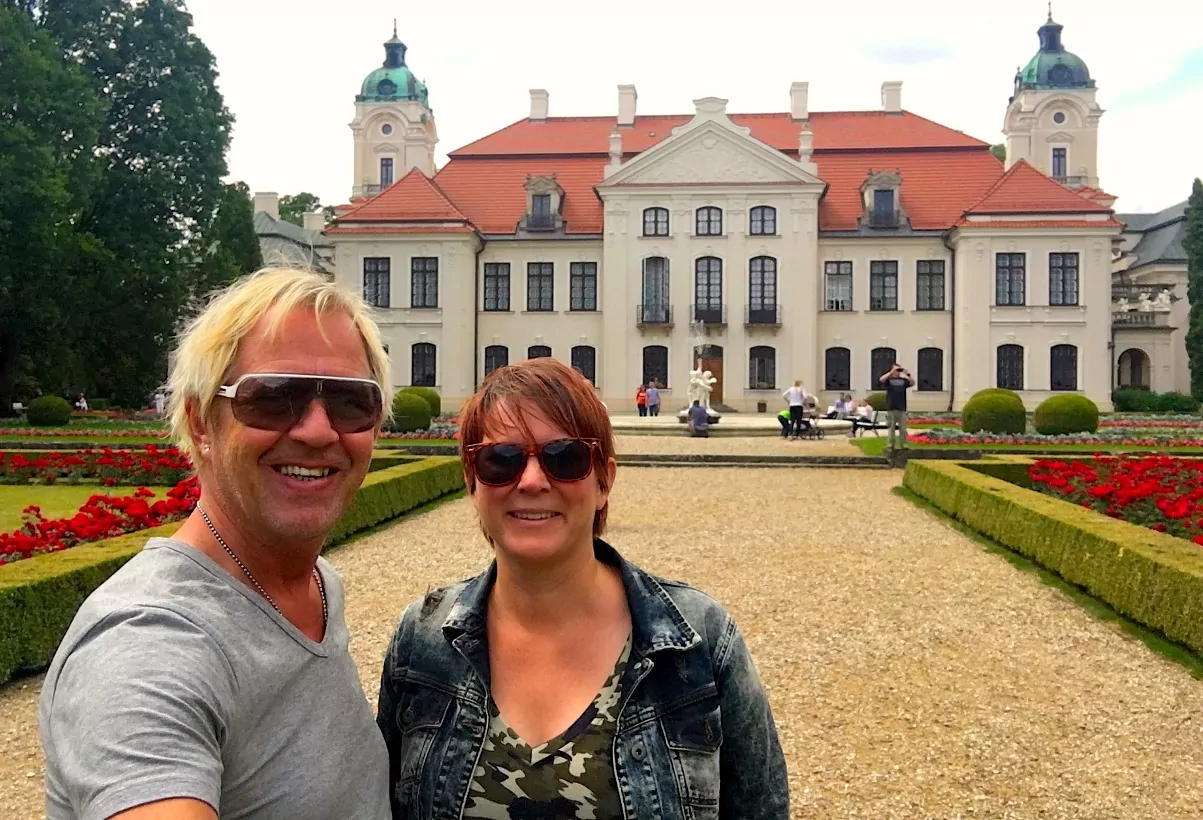

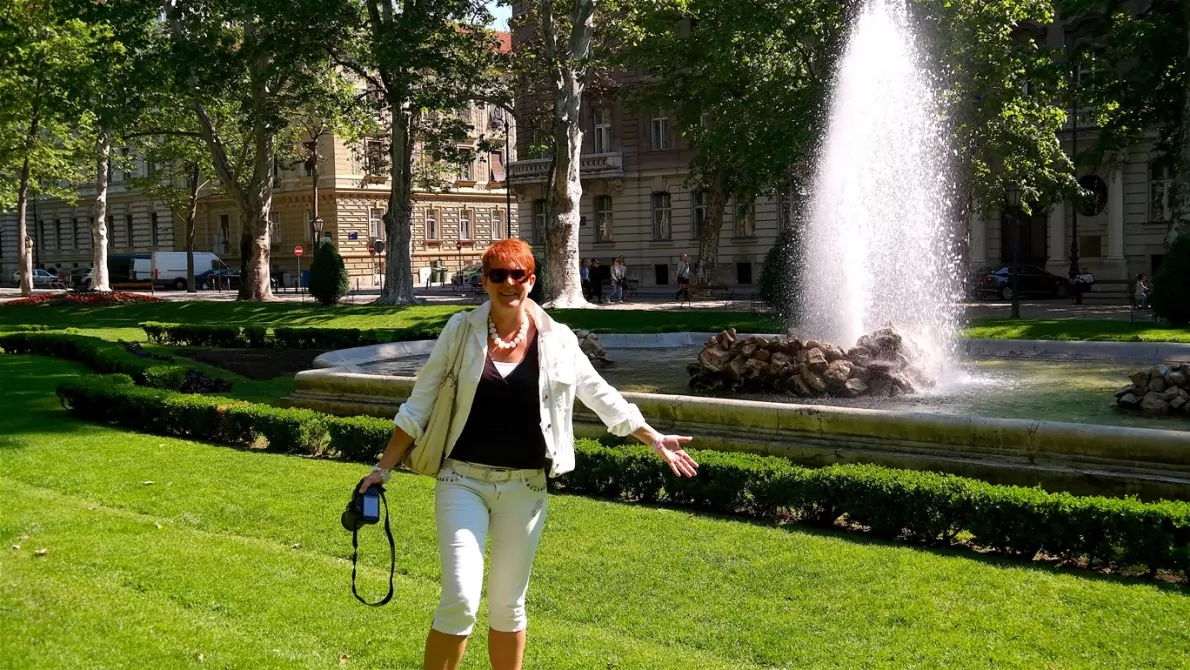
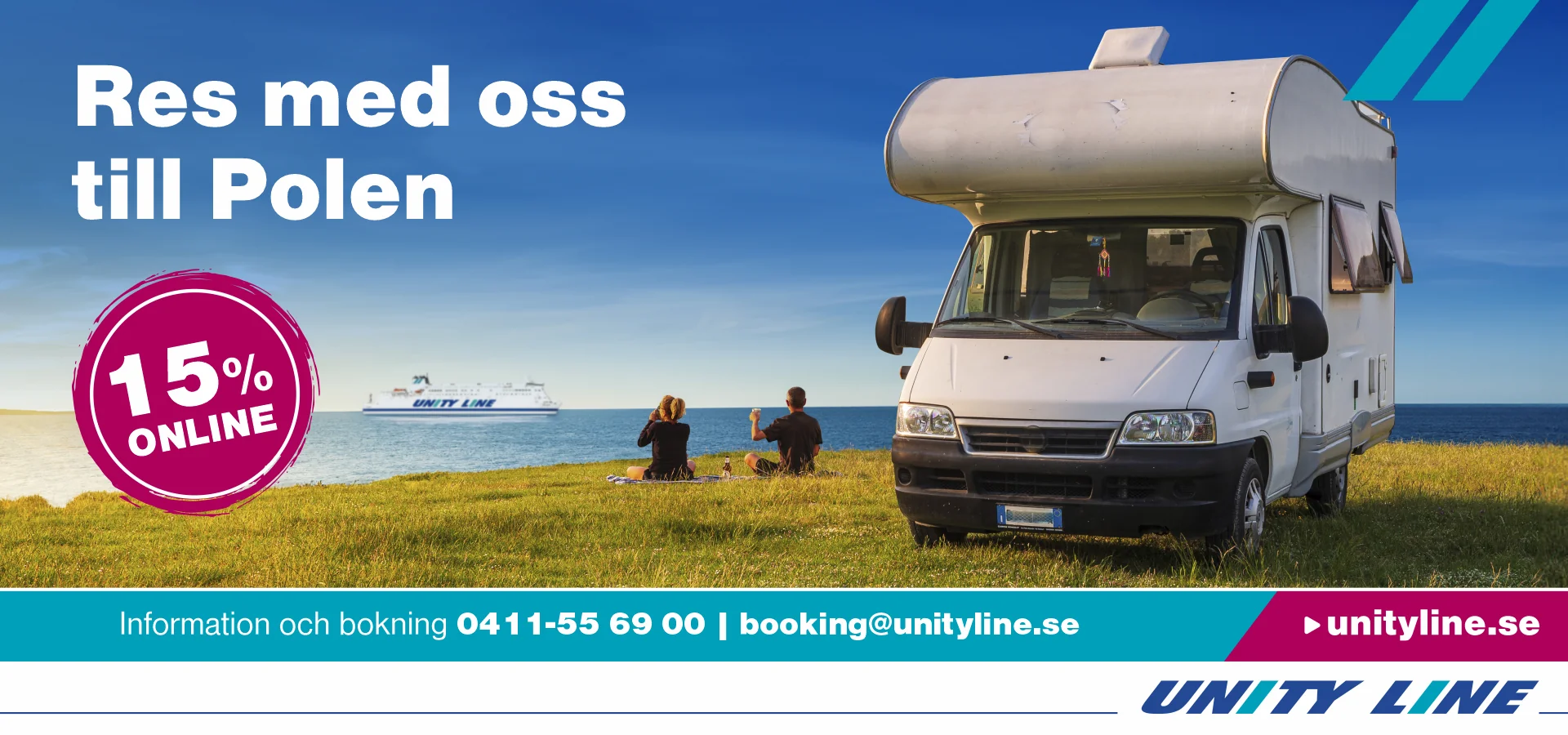









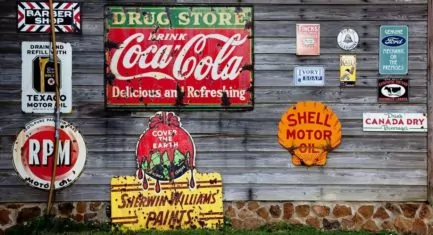
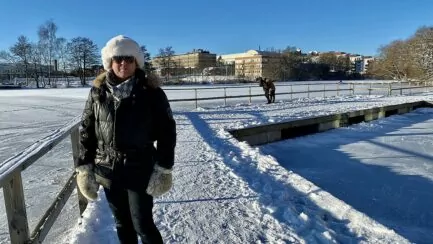
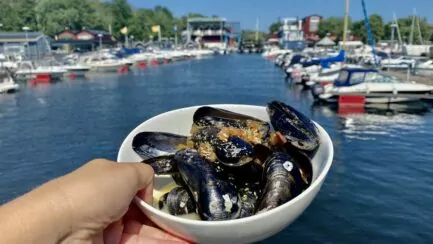
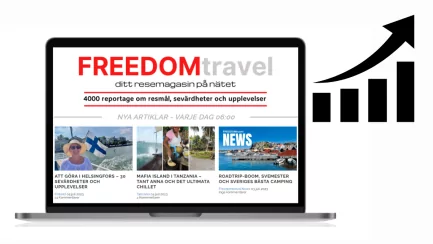



Birgitta i Umeå says:
Good morning, you're a real early riser!
I have read again now. I end up visiting the blog a bit sporadically when I spend 5 weeks in a fishing village in south-west Crete.
But now we are in a small guesthouse in Chania. As a neighbour we have the largest church in town and the church bell has started to ring and will do so every hour during the day,,,,
Tomorrow we take the morning flight via Athens and Arlanda to reach Umeå in the afternoon.
Thanks for nice morning reading (on my computer)
14 January 2018 - 6:09
Helena says:
Good morning Birgitta! It sounds wonderful with a stay in Chania!!! And well, I'm fairly early in the morning, but I still write the posts in the evening and set up for publication at 06:00 in the morning 😉
14 January 2018 - 9:37
Lisa / livet från den ljusa sidan says:
Great summary! I (like you) very often get offers for press trips, but very rarely have time for them. I prefer to travel according to 1) private. At the same time, press trips as well as campaigns are a way to see other places than one might have thought - and with that be able to give more to travel-interested readers. It is actually a real win-win.
I also work a little with campaigns with the Travelling podcast. For me, it differs in a positive way from press trips as we only work (pitches) with those we really WANT to work with. Extremely important that it is RIGHT. So in that way, the authenticity is very high, as high as private, and I hope it shines through. For me, it is very important to travel and collaborations that fit my niche.
14 January 2018 - 8:26
Helena says:
It is certainly difficult to get everything together in terms of time. I recognise that! I work full time, so we also have to say no to press trips. You don't have a lot of holidays ... I agree that both press trips and campaigns can showcase new interesting places that you might not have discovered otherwise! Of course, it is important to choose who you WANT to work with, where I see no difference between press trips and campaigns. Personally, I would find it a little difficult to dare to write negatively about a destination if I have been paid to promote the destination, but I know that many travel bloggers have as their focus to always write about the positive, and then it may not be difficult in the same way. We always want to highlight both the positive and negative, and what would the client of the campaign think of that?
14 January 2018 - 10:14
Emilie says:
Interesting reading. See no problem with paid campaigns really. But as a reader, I want to read about the negative too, you know yourself that not everything is super good on a trip always, so if you write nothing bad, you can start to wonder. How much does it hurt the collaboration if you write a bad thing about an otherwise great hotel experience? Honesty is best! 🙂
14 January 2018 - 9:26
Helena says:
When we go on press trips, we feel we can write freely. Of course, we only choose press trips to destinations that we WANT to experience and think we will like. On press trips, countries often showcase the best so a lot of things become positive automatically. But if there is bad service at a restaurant or something like that, we write it. However, if we were paid to promote a destination, I would find it difficult to write anything negative. Note that I do not have any experience of working with paid campaigns, so perhaps it is better to ask those who do!
14 January 2018 - 10:18
Steve says:
I think full transparency is good. I think you are always clear about what kind of journey you are on and I have never felt cheated on your blog.
14 January 2018 - 9:50
Helena says:
Glad to hear you feel that way Steve! The most important thing for us is that our readers trust us!
14 January 2018 - 10:19
Ditte says:
A very interesting post, I think, and as for you, whom I have followed for many years and seen the blog grow enormously, I think you are always very clear about the type of travelling and partners.
I have most experience of private travel of various kinds and business travel in A big advantage of my business travel is that I work for a privately owned travel agency that has an incredibly well-composed and prepared programme in everything. The golden nuggets are there and it is very efficient but without rushing. Good time margins.
And most of the places I have visited before as a private person, otherwise the job would not be possible to properly guide guests. (We also often hire local guides).
When you explain the difference between press trips and paid campaigns, I don't see much difference, as you say.
The most important thing for me as a reader is to know both the pros and cons of what you experience.
I have sometimes wondered that, although it is in the nature of things, the hotel and restaurant choices on "paid trips" seem to be in a different class than what you might book for yourself. But it is also clear with you and you usually also give other more wallet-friendly suggestions.
14 January 2018 - 10:39
Helena says:
The difference between a press trip and a paid campaign is that on a press trip there is no contract and no salary, which is the case with paid campaigns. I fully agree with you that hotels and restaurants on press trips are in a different price range. Maybe you should ask them sometimes to show good affordable alternatives, it is often even more interesting for many readers! When we travelled with a motorhome in Istria on a press trip, we actually chose a small camper van instead of a motorhome, as we thought it was more interesting to write about.
14 January 2018 - 18:26
Renates Reiser says:
Great post! I myself prefer private travel, precisely because of the freedom it gives you to write what you want. The big disadvantage, however, is that you have to pay everything from your own pocket, and that it can be expensive. 😉
I have probably turned down at least eighty per cent of the press trips/collaborations I am offered. Both because it does not fit with other trips I have already booked, but also because I only want to accept trips and collaborations that I myself want and believe in. I want the readers of the blog to feel that what I write has credibility, and that I do not accept everything possible just because I get money for it, or other benefits.
As you write, press trips can provide a unique insight into a destination, and you may discover gems that you would hardly discover on a private trip to the place. This is very positive! Nevertheless, you get an arrangement that means that you will not have much negative to say about the trip or the place anyway. After all, you get free accommodation in great hotels, meals in great restaurants included, good service and access to good guides and experiences that many who travel privately have not liked access to.
It can therefore be a bit of a fine line, I think, regarding how you are perceived when you write about such trips. But as long as you are good at labelling the posts, readers know what is sponsored and what is not, and can organise their impressions accordingly. You are very good at that!
14 January 2018 - 11:00
Helena says:
Thank you so much for sharing your thoughts Renate! I agree that private travel is preferable, but it is simply difficult financially. Then I think it's interesting what you write, that you actually do not get so much negative to write about, because you are invited to nice hotels, etc. You may write honestly, but at the same time, reality is a bit corrected. This is actually tricky!
14 January 2018 - 18:36
Elisabeth says:
Personally, I find it very nice to be away from all the advertising.
14 January 2018 - 11:32
Helena says:
I can understand that Elisabeth. If blogging wasn't such a big part of our life we would do the same thing, we are trying to find a good way to deal with it.
14 January 2018 - 18:37
Nils-Åke Hansson says:
We have no advertising on the blog, just that I am sponsored by my son's company with the cost of the blog.
Certainly I have been offered a sum of money for each post BUT then they wanted to dictate where I drove. Was already on the site but declined. Should say that it was good money would have been enough for a lot of Diesel.
14 January 2018 - 14:50
Helena says:
Yes, you can get offers as a blogger! You have to choose what is relevant and prioritised. And we ourselves pay the cost of the blog 😉 .
14 January 2018 - 18:39
OnTrip.dk says:
Tense reading. We only say yes to collaborations that we can vouch for and that fit our blog. We want that freedom no matter what journey we're talking about.
It's funny but certainly also unfair where and how things are marked in Sweden compared to Denmark.
In Denmark, the rules have become so tight recently that there is no room for manoeuvre anymore. Even if we have not agreed anything, all free services must be marked.
This means that journey 2+4+5 must be marked in Denmark. It must be marked with an advert or advertisement at the top of everything. So on the blog and all the social media.
We bloggers in Denmark feel quite persecuted because it rarely makes sense to write advertising at the top of a post.
If only the rules in Denmark were like those in Sweden.
/Annette
14 January 2018 - 15:41
Helena says:
Thank you for your comment Annette! Very interesting! Do the strict rules only apply to you as bloggers/influencers or also to journalists? My experience in Sweden is that bloggers should label everything possible, while newspapers do not label. But still, the rules in Sweden don't seem to be as strict as in Denmark.
14 January 2018 - 18:41
OnTrip.dk says:
Yes, the same rules apply Helena but almost no journalists comply with them. There are new rules from August last year and the biggest newspaper in Denmark says it is misleading and that they will not comply.
It used to be like in Sweden - if you had an agreement to deliver something, it had to be marked. It was fair and made sense.
/Annette
14 January 2018 - 19:37
Helena says:
Interesting! But can notifications just ignore the rules? Does nothing happen then? And yes, the rules in Sweden seem reasonable. I hope it doesn't change.
15 January 2018 - 16:31
Lena & Jan says:
VERY INTERESTING Helena & Peter! Just as we got to know you "complete transparency" it should be! Continued GOOD LUCK with your travels and reports ...
Hugs from a light grey pre-rainy weather in Roquetas de Mar, Spain ???? ??
14 January 2018 - 16:59
Helena says:
Thank you Lena and Jan for your comment! Of course we will continue with full transparency! Hope you are having a great time in Roquetas de Mar and that the sun is coming out soon!
14 January 2018 - 18:42
Lena & Jan says:
The sun back at sunset, no worries as usual with ? Read on others' comments regarding only positive views ... It is also like this when you return to different destinations, then you have previous experiences (positive / negative) in your luggage and usually do not experience the same again. I mean that the understanding of the order of things, appearance, underlying history, etc. becomes clearer, you get an understanding of how, why it is not as you want it to be ... the goal of your trip is not to change the world, right? Ex; different nationalities want the food to taste this or that etc, etc, then maybe you write down the destination for that. No, more knowledge/fact finding or talking to the locals at the destination rather than writing negatively about them? ☺️
14 January 2018 - 20:45
Helena says:
I completely understand your point of view here! To write negatively because you don't happen to like the food in a certain country would be sad. When you love travelling, most things are probably positive by themselves. Then there may be things like poor service or similar that you are not satisfied with. A hotel, for example, can improve, but at the same time you don't want to recommend others to stay at a hotel that wasn't good. Then you can have different opinions as well of course 😉
15 January 2018 - 16:34
BP says:
Firstly, I would like to say that you always label your posts whether it is a press trip or a collaboration. You do not only collaborate with travel-related "companies" but also with others. I recall that you have collaborated with a gaming site and a finance/loan company, among others.
It is true that you don't bite the hand that feeds you, so to speak. You very rarely write anything negative when you are on your press trips. I think you are automatically affected, as you want to be invited to more events.
When it comes to collaborating with "non-travel related" companies, I'm a bit hesitant, as some "sponsors" are simply not relevant to your blog and the posts then become rather "creepy".
In any case, your posts are extremely well written and clearly labelled.
14 January 2018 - 17:52
Helena says:
You're right, BP, it's true that we sometimes work with completely different companies for blog posts. I thought about writing about that as well, but chose to write only about travel in this post so it wouldn't be long and cluttered. I agree that it is good if you can stick to working with companies that you really like and feel that you sympathise with and want to support. We strive for that, even if it hasn't always been easy to get everything together financially. But I like your honest views and think you are right. It is probably also true that we usually write positively on press trips, although I have several examples of occasions when we have brought up things that are negative. (And we probably write very positively on private trips as well.) We always write 100 % honestly BUT I think Renate above has a point. On press trips you often get to stay in good hotels and eat in good restaurants, and you simply get to see the best. That is, even if you write honestly, it is in the nature of things that you avoid certain mishaps, etc. The experience is a bit of a fix and thus often becomes positive. So for this reason, I think it's super important to label! And I am happy to discuss this more! Many travel bloggers say that they "report exactly the same" regardless of whether it is sponsored or not, but I actually think it is a little more complex than that.
14 January 2018 - 18:53
Sandra Lifsresor.se says:
I've been thinking a lot about writing exclusively about the positive experiences and leaving out the negative ones, simply not writing about them at all. I read on travel blogs about a destination where bloggers have done, say, 10 things (hotels, restaurants, excursions, museums, etc.). 7 things were great but 3 were boring. The blogger writes about only the 7 good things. I read a few different bloggers' trips to the destination. They all do slightly different things and choose to write only the positive ones. The whole thing then becomes very positive for the destination but the reality may be like that. A lot of things to avoid. I would like to have that information when planning a trip. I have not really landed in how I do this myself. So far I have made a mixture (I think anyway).
14 January 2018 - 20:13
Helena says:
This is a bit tricky, but I'm probably thinking the same as you. Our reporting from Israel, for example, was probably mostly positive. A country with a lot to offer and that we gladly recommend. At the same time, we want to mention that it was expensive and that the hotel did not live up to its stars.
15 January 2018 - 16:37
Sandra Lifsresor says:
May continue to figure out simply. 🙂
16 January 2018 - 23:04
Mias Mix says:
No matter how you travel, it is wonderful to travel and make new discoveries and experiences. You offer a lot of good reading. Any tips about Iceland? Thinking of going there this summer. And then it will probably be Bya Zealand for the winter.
14 January 2018 - 22:22
Helena says:
Oh how wonderful that you are going to Iceland! I have lived there for a year (a long time ago) and have been back several times, including travelling around the Ring Road. Look under the Travel Tips tab here on the blog and you will find our Iceland tips! And NZ, Waow! A fantastic country!
15 January 2018 - 16:45
jan-Christer Tholin says:
Good morning Peter & Helena!
Excellent that you bring up and explain . I am paying for travel, hotel and other expenses.
Support from :www.visitokinawa.jp/
Jan-ChristerTholin/
touristjournalist.org
15 January 2018 - 0:57
Helena says:
Great to hear a report from a journalist! 🙂 Japan seems sooo exciting!
15 January 2018 - 16:50
Lena - gott för själen says:
Of course, I think. It's clear what the structure is. Clearly good when you also write about negative things to get a credible picture. Clearly, I trust bloggers (or other influencers) to a much greater extent than other media.
Hug Lena
15 January 2018 - 6:12
Helena says:
Sounds great! 🙂
15 January 2018 - 16:50
Anna / Webbtanten says:
I have vacillated back and forth with what I think as a reader about all these different adverts for many years. As a blogger, I have always declined, probably because I have wavered as a reader. I fully understand that bloggers want to make money. But at the same time, the new concept of influencers is very clear. They influence. I choose to be an inspirer. Your posts are always excellent and with good content, and I especially like your posts about motorhome life. This post is much needed and clear as usual! I think that as long as a blog is very clear with collaborations, it is up to me as a reader to decide whether I want to read and be influenced or inspired. Hope we get the opportunity to meet this summer, maybe when we spend a week in Sthlm in April with the motorhome. Thanks for all the inspiration!
15 January 2018 - 12:08
Helena says:
Thanks for your comment Anna! Yes, both developing the blog to a higher level of ambition AND turning down collaborations is difficult. Thinking like you, the important thing is to label clearly and always be honest. Then the reader can judge. Then we always want to have a dialogue with the readers so we can sense if things are going wrong.
17 January 2018 - 19:03
Christian says:
I agree with you that you are often taken to good hotels and restaurants on press trips, but I usually go outside the agenda and find the most interesting restaurants and bars myself and visit them on my own when the programme for the day is over. The same thing with hotels, if I have time, I usually try to find luxury, medium and budget hotels that look nice so there is something for all budgets.
For me, there is a big difference between going on a press trip where you follow along without compensation or demands on content and a trip where you send an invoice, in the latter case it is probably more difficult to give tips on things that are not on the programme!
Regards Christian / Matochresebloggen,se
17 January 2018 - 15:55
Helena says:
You are very good at looking up restaurants and hotels even when you are on arranged press trips Christian, must really give you a praise for that! You always do that extra! Where you get all the energy from I don't know 😉 Have fun!
17 January 2018 - 19:04
Marias Memoarer says:
Good to clarify the different concepts! Not even I as a travel blogger have full control because I have not been on a press trip or similar. However, I have had a sponsored post where I link to a company. Probably falls under category 2. Then I have occasionally received a discounted experience in return for blogging about the experience - without the requirement that I have to write positively about it of course. I have simply labelled these posts as "in collaboration with xxx". And possibly added a "all opinions are my own" or something like that 🙂 Is always transparent that I have received something in exchange for the post, be it in the form of money, service or product 🙂.
17 January 2018 - 18:32
Helena says:
It's not easy to keep track, which is why we wanted to write this post. We simply wanted to tell readers what it means when we and other travel bloggers make different labels. Then it's easier for readers to make their own judgement. Readers are not stupid, so to speak 😉 We also sometimes do sponsored posts about different things. I did not write about it in this post, but if we charge for a post, we write out that it is a collaboration, and with which company.
17 January 2018 - 19:06